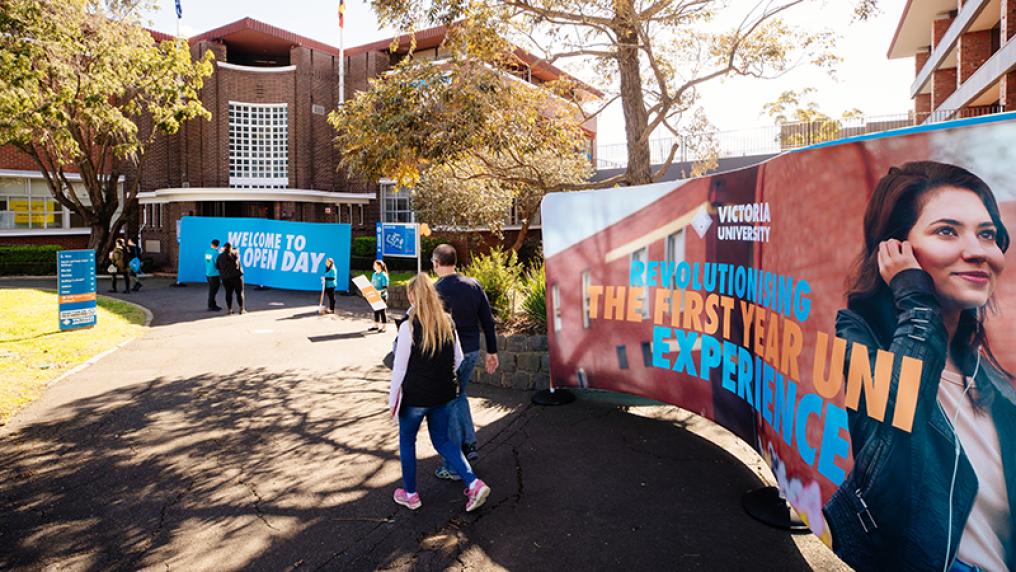Systems are robust: Shaking the tree at Victoria University

From a nascent idea in early 2017, Victoria University created an interdisciplinary First Year College to introduce the Block Model – a pedagogical and organisational approach known to enhance educational gain and sense of belonging.
In a recent visit to see Victoria University’s Block Model first hand, Professor David Helfand, a block model pioneer, stated: “It has been a true inspiration and a matter of complete wonderment to me that this institution has managed in…eight months to transform the education of 4500 students and is now, eight months later, doing it for the other 10,000 or 15,000. You have already, by far, a block program with more students than all the other universities in the world combined that have block systems.”
The VU Way
Now described as The VU Way, students studying in block mode engage deeply through active learning in small cohorts, studying one subject at a time and completing all assessment before moving onto the next subject.
Results have been outstanding. All students have achieved higher quality learning outcomes; those from educationally disadvantaged backgrounds even more so.
As other institutions watch closely, VU is now extending the model to all year levels.
What have we learned?
Trish McCluskey and Professor Ian Solomonides, founding and lead architects of the VU Block Model, reflect on the last two years, and list these learnings:
- That challenging a 900-year-old university system, its customs and practices, to effect change of this scale is not for the fainthearted. But it can be done.
- That it takes bold leadership at every organisational level.
- That the timetable is a hegemonic device [that it facilitates continued control by the dominant social group].
- That semesters are an arbitrary construct, possibly agrarian [related to the advent of agriculture-based societies].
- That the industrial-age model of education is incredibly robust.
- That the ‘block’ changes everything, including teaching, research, administration, services, systems, policies and procedures.
- That collaborative forms of knowledge production, problem solving, educational design, and learning are key to equipping universities, their students and staff for success in the 21st Century.
Professor Ian Solomonides is DVC (Academic & Students) and accountable as project owner for the VU Block Model transformation.
Trish McCluskey is Director of Connected Learning, driving the implementation of the VU Block Model learning design.



